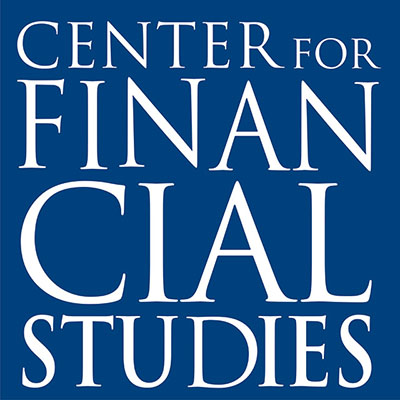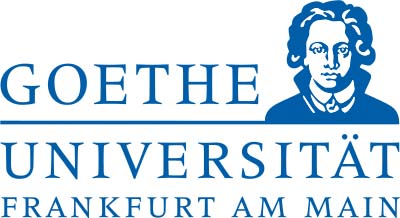About us
Chronicle
1964
To commemorate the 50th anniversary of the Goethe University in Frankfurt, some banks, in particular private bankers and the Frankfurt Stock Exchange set up a fund for establishing a research institute.
1966
The proclamation for founding a research institute is signed. The institute (still today) is funded by donations and membership fees.
1967
The Institut für Kapitalmarktforschung is established as a research institute affiliated to the Goethe University Frankfurt. It is sponsored by the Gesellschaft für Kapitalmarktforschung e.V., which is founded in the same year. It is the first research institute in the German Federal Republic which is concerned solely with issues relating to capital markets.
1968
The Institute takes up its work. It is initially located in the Robert-Mayer-Str. 20, before moving in 1971 to the Sophienstr. 56 and then in 1989 to the Zeppelinallee 29. Prof. Karl Häuser (Goethe University Frankfurt, Chair for public sector economics) is Head of the Institute. In addition there are initially two academic members of staff, two temporary employees and a part-time secretary. In 1968 the lecture series on the theme of “Current problems of the capital market” is established. Two publication series are introduced entitled “Colloquia discussions” and “Monographs”. The first research paper focuses on capital market development since 1957. Studies follow on, the taxation of capital investment income, the paradox of returns (stocks and shares versus annuities), money market dependence of the capital market, and financial market issues.
1986
Prof. Häuser becomes Professor Emeritus and concentrates more on his role as the Director of the Institute.
1992
Prof. Häuser retires as Director of the Institute. Prof. Bernd Rudolph and Prof. Wolfgang Gebauer (both Goethe University Frankfurt) are made Directors of the Institute. Prof. Rudolph is the first business economist to become joint head of the Institute. The research activities can thus be more directly focussed on the link between business studies (finance) and economics (money and exchange rates). The publication series “Beiträge zur Theorie der Finanzmärkte” is established.
1993
Prof. Rudolph moves to the University of Munich but remains Director of the Institute.
1995
Prof. Gebauer resigns from the Institute. Jan Pieter Krahnen transfers from the University of Gießen to the Goethe University Frankfurt and becomes at the same time Director of the Institut für Kapitalmarktforschung. A working group of economists is formed who call for the institute to be extended in the area of executive development.
1996
The Institut für Kapitalmarktforschung is given the additional name “Center for Financial Studies”, reflecting the increasingly international orientation of research activities. The first research conference organized by the Institute takes place, and the CFS executive development program comes into being. Its aim is to provide qualifications and further training for specialists and executive personnel from the financial sector. The financial base of the Institute can be considerably enlarged thanks to support from members of the Gesellschaft für Kapitalmarktforschung. A first network program on the subject of “Financial Risk Management in German Banks” begun with the co-operation of the most important German commercial banks.
The former President of Deutsche Bundesbank Karl Otto Pöhl becomes President of the CFS.
1997
The CFS moves to quarters in the “Landeszentralbank in Hessen” (today: Head Office Hessen of the Deutsche Bundesbank), Taunusanlage 6. Karlheinz Schwuchow becomes Manager Executive Development. The CFSworking paper series is set up. The first edition of the CFS Newsletter appears.
1998
Prof. Rudolph resigns from CFS. At the end of 1998 Axel A. Weber from the University of Bonn moves to the Goethe University Frankfurt and becomes Co-director of CFS together with Prof. Krahnen. The field of research is now extended to include not only the area of “Financial Markets and Intermediaries” but also “Monetary Economics”. The lecture series is also extended.
2000
The fields of research and executive development are now organized jointly under the management of Antje Becker. CFS becomes the German partner in the European Union’s research network on “Understanding Financial Architecture: Legal and Political Frameworks and Economic Efficiency” and “The Analysis of International Capital Markets: Understanding Europe’s Role in the Global Economy”.
2001
The Center for Financial Studies – Institut für Kapitalmarktforschung is from now on only called the Center for Financial Studies (CFS). This name change is intended to produce a visible connection between all CFS activities, which the original joint name did not always convey to the outside world. Moreover, the new name bears witness to the Center’s increasing international orientation and visibility.
2002
At the beginning of the year CFS together with the European Central Bank (ECB) starts a network initiative entitled “Capital Markets and Financial Integration in Europe”. Researchers from the ECB, the System of European Central Banks as well as academics from universities and research institutes throughout the whole of Europe are involved.
Prof. Weber is appointed as a member of the German Council of Economic Experts. He also takes up a Chair at the University of Cologne. On 28th February he resigns his position as Director of the Center for Financial Studies but will continue to work together with CFS on joint research projects.
The new concept for the field of research envisages an integration of up to seven Program Directors, who within the already established conceptual framework, are to supervise on an independent basis individual research programs. The first leading Program Directors are Prof. Krahnen (Goethe University and CFS) for “Credit Management and Credit Markets” as well as for “The Reinsurance Industry & Capital Markets”, Prof. Stefan Mittnik (University of Kiel) for “Risk Management”, Prof. Mark Wahrenburg and Prof. Uwe Walz (both Goethe University) for “Venture Capital & the New Markets” and Prof. Volker Wieland (Goethe University) for “Central Banking and Monetary Economics”.
2003
The Center for Financial Studies-Foundation is established. Prof. Wieland becomes Co-director of the CFS together with Prof. Krahnen. Prof. Michael Binder (Goethe University) becomes leading Program Director for “International Economics”.
2005
Christian Laux (Goethe University) becomes Program Director for “Insurance and Risk Transfer” and Michael Haliassos (Goethe University) for “Household Wealth Management”.
The Center for Financial Studies (CFS) and the Goethe University Frankfurt award the inaugural “Deutsche Bank Prize in Financial Economics”. The prize winner is Eugene F. Fama, Professor of Finance at the University of Chicago Graduate School of Business.
The Center for Financial Studies moves to the premises of the Goethe University Frankfurt.
2006
Otmar Issing is elected as the new president of the CFS.
2008
Together with some other institutions, the Center for Financial Studies moves to the newly built House of Finance at the Westend Campus of the Goethe University.
2009
Professor Wieland has decided not to extend his contract as Co-director of CFS. He will continue his commitment as Program Director of the area “Central Banking and Monetary Economics”.
2010
Two new Managing Directors are appointed. Michael Haliassos (until end of 2015) and Uwe Walz together with Jan Pieter Krahnen form the new CFS management team.
2013
2017
2020
2022
Prof. Dr. Axel A. Weber, former Director of the Center for Financial Studies, President of the Bundesbank from 2004 to 2011 and Chairman of the Board of Directors of UBS AG until April 2022, is elected as the new President. He takes the seat of Prof. Dr. Dr. h.c. mult. Otmar Issing, who was appointed Honorary President of the Institute.

